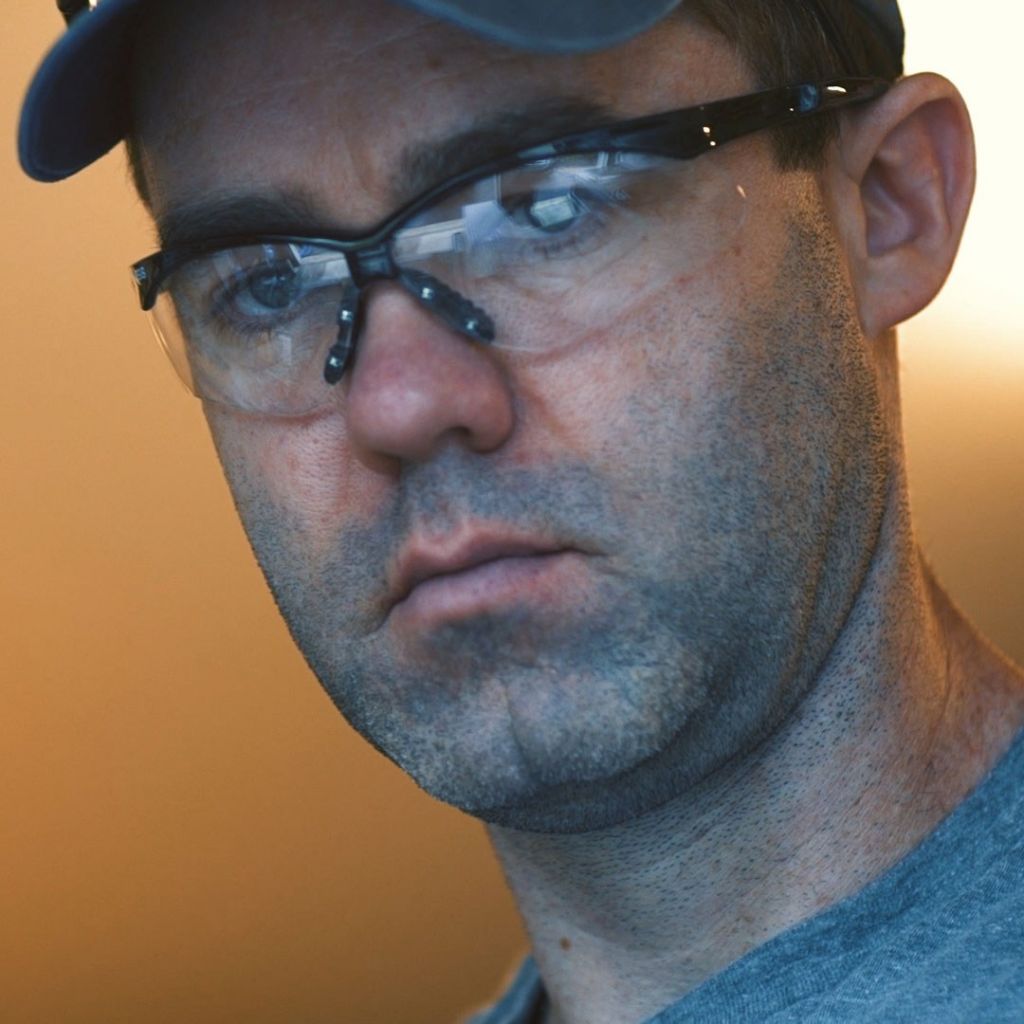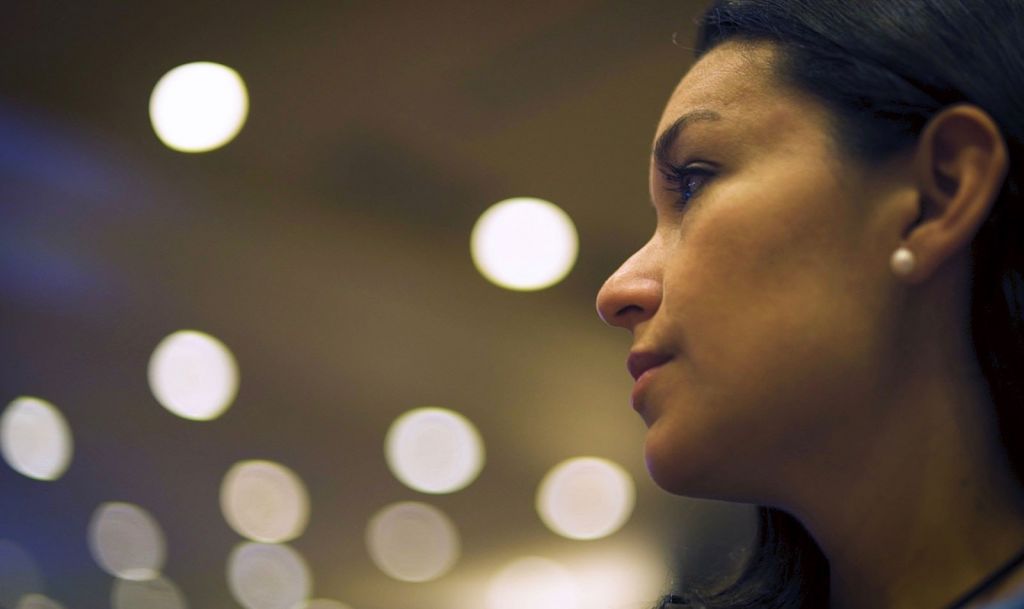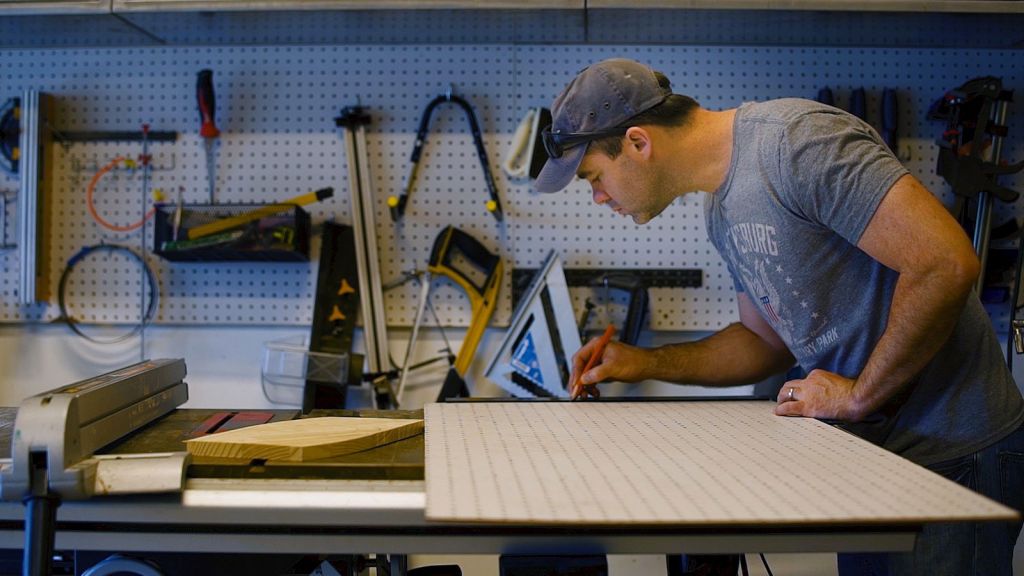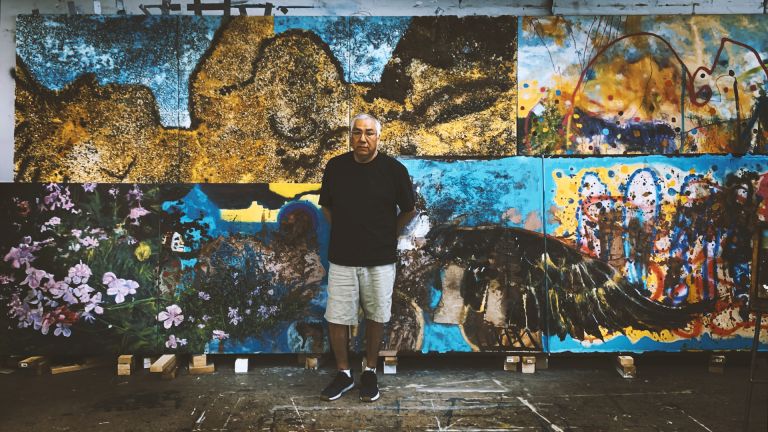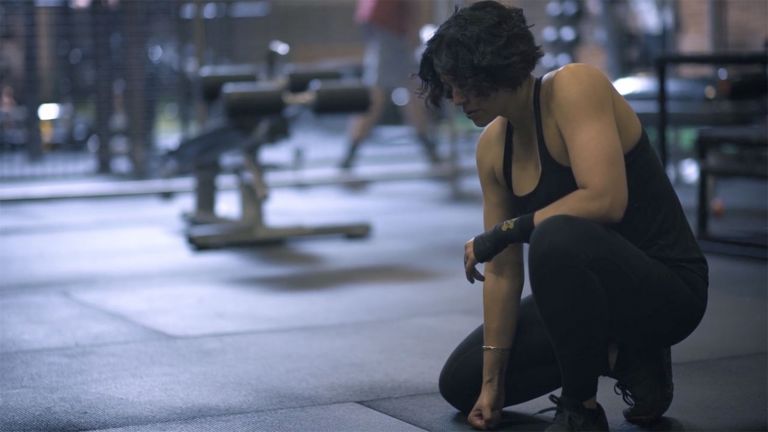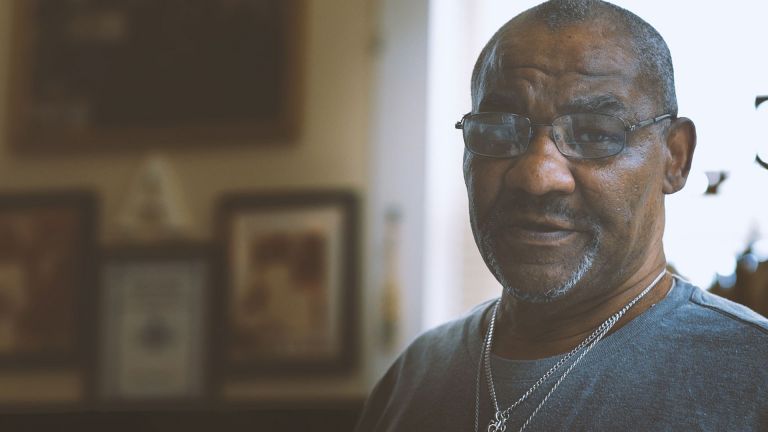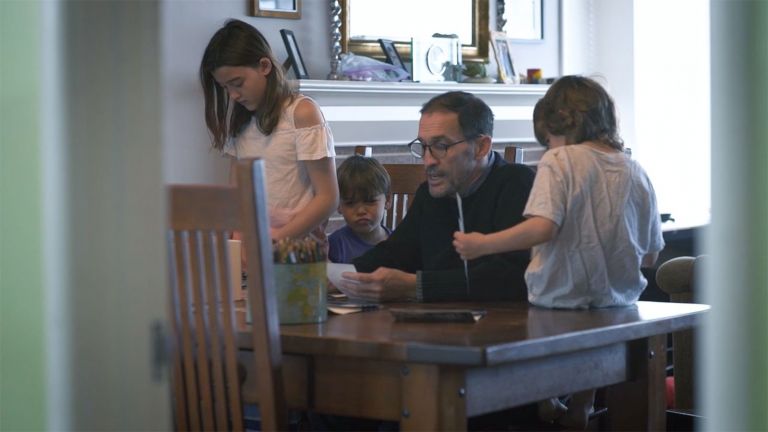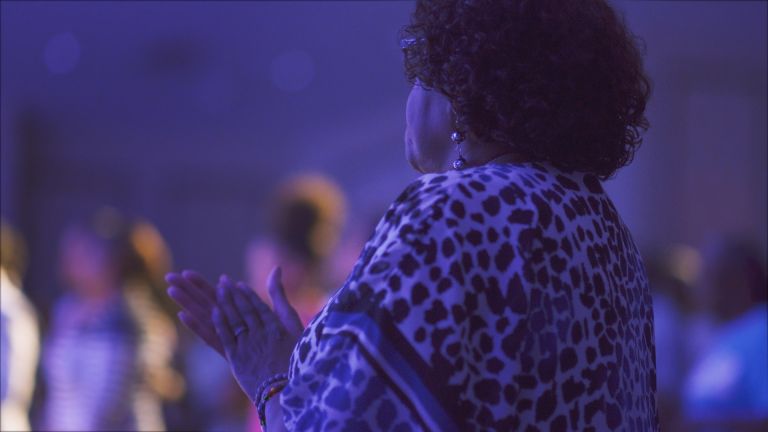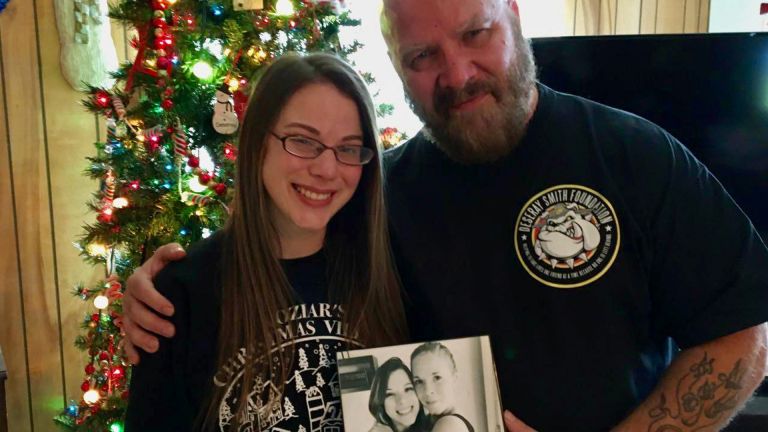McKee Family
Beatriz and Tom McKee’s brother/brother-in-law, Oscar, died by suicide in 2017. Beatriz overcame feelings of shame and isolation because of how her brother died. Tom acknowledges that he struggled with Oscar's death and with how to support his wife in her grief.
BEATRIZ: My brother.
TOM: My brother.
BEATRIZ: I was working from home that day and I received a call from my father telling me that my brother had passed away. And I remember thinking, “this has to be a mistake.” Like how could this have happened to my brother?
TOM: Grief has a way of just completely changing your life. It takes it and just flips it over. The way that we relate to others is by having things in common with them, and as soon as something horrible happens to you, it all of the sudden becomes impossible to relate to anyone around you, because they haven’t experienced this.
BEATRIZ: After he had passed, a lot of people showed up and offered their support and their love and offered to do anything and everything for you. That lasts a very short period of time. And then people go back to their normal lives and society pushes you to get back to your normal life. And it doesn’t work that way. When my brother died, a part of me died.
I was out of work for a little while because I wasn’t ready to face people. I wasn’t ready to be asked the questions. I think a part of me felt afraid, that I was going to be judged because of the way that my brother passed.
TOM: There’s definitely a stigma associated with suicide, and one of the things that we learned as part of this recovery is just to call it what it is. Oscar died by suicide, and that’s an important thing to just recognize. It’s the brutal reality, but you have to lay it bare if you really want to have a productive conversation around the topic.
BEATRIZ: Now that time has passed, I better understand the state of mind that he may have been in. It wasn’t that he wanted to do this. It was this battle that he had with his brain where it was telling him that this was the only choice.
TOM: We have good days and bad days. It’s certainly something you just have to continue chipping away at. You’ll have setbacks. But, that’s OK.
BEATRIZ: Driving into work, for me, I find that’s the time that I reflect the most and it’s listening to songs that my brother and I enjoyed growing up together. And it’s hearing these songs (crying), that just... it makes me break down. And it’s getting better, ’cause there are certain songs that I can listen to now and not cry.
TOM: My grief has changed from the beginning to where it is today. I wouldn’t say that the anger is gone completely. I still get upset with Oscar sometimes when I think about it. At the same time, a certain level of acceptance has given me peace. I think, that we can’t change it, so we just have to accept it and try to go forward. What other choice do you have? You got to keep living your life, doing the best for the people who are depending on you, for the people who are around you.
Everybody, without exception, loses somebody at some point in their life who is special to them. Certain things that you say, certain things you do, they can mean a lot to people.
BEATRIZ: One of the things that I stopped doing was when I was crying and talking to someone, I would say, “Oh, I’m so sorry. I’m sorry for getting upset.” And now I’ve realized I don’t need to be sorry. It’s okay for me to cry. It’s okay to have these tears come out because they’re tears of love. Because whenever I talk about Oscar, I remember the person he was and the love that I had for him. He was somebody in this world. He mattered. And I can’t forget that.
I was working from home that day and I received a call from my father telling me that my brother had passed away. And I remember hearing his voice on the phone and just thinking like, “this has to be a mistake.” Like how could this have happened to my brother? So it was just a moment of shock and almost this feeling of getting punched in the stomach and just having the wind taking out of you. It was followed by not so much crying, but just feeling numb. The only thing that I wanted to do was to get to Texas to make sure that it wasn’t true. As part of my mindset, no, there has to be a mistake. I remember trying to call my brother just to see if he would answer, if I could get an answer from him. That the whole airplane ride to Texas, I cried. And it was, uncontrollably sobbing in my seat. Just remembering, thinking about the last time that I talked to him. Thinking about the things that I said to him. Thinking about all the plans that we had and how none of that it was going to happen and praying. And I’m thinking in my mind that perhaps there is a chance that this is not true and that when I get there, the outcome will be different.
I didn’t know what the steps were, you know having no experience prior with any of this, we had to go on the internet, you know I had to look things up, I had to find the steps. You know what do you do when your family member is deceased, you know who do you contact, if there’s police involved, how do we get a Death Certificate, you know how do we go about even just planning a funeral or a viewing, or transferring his body over to a different state because he lived in Texas. These were all things that were just so incredibly overwhelming. And I don’t think that at that point you’re even grieving. I think at that point you’re still in shock. It’s not until you go through all the events that need to happen, that the grieving process begins.
I was out of work for a little while and I think most of it was because I wasn’t ready to face people. I wasn’t ready to be asked the questions of, you know, “how are you,” And I think the stigma behind the way that my brother passed. I think a part of me felt afraid, that I was going to be judged. And people don’t understand that this happened because it’s a mental illness at the time it was hard for me to understand. It was hard for me to, to accept the fact that he had chosen to do this himself. After the fact, now that time has passed, I read a lot about suicide and to just better understand the state of mind that he may have been.And, you come to learn that it wasn’t that he wanted to do this. It was this battle that he had with his brain where it was telling him that this was the only choice.
The immediate aftermath was absolute chaos. You know, it was just living in sort of a whirlwind of confusion, anger, grief, it’s not just something that happens to you internally.
You’re dealing with your own emotions and thoughts, but you’re also looking at the destruction that it wreaks on people that are closest to you. And that’s even harder in some cases.
I tend to think of myself as somebody who fixes problems, you know? That’s what I do at my job. It’s what I do around the house. I’m a fixer. But when you run into a scenario or a situation that you can’t do anything to fix, you know, it’s just a feeling of helplessness, profound sadness.
We just had no idea of like why, what happened, who we’d go to for support, how we’d deal with transporting him back home. You know, what would happen to his son. You know, these are all questions that just were at the forefront of our mind, but nobody really had a clear answer to, you know, it was just panic everywhere.
There’s so many questions, you know, how am I going to get down there? How are we gonna afford to get down there on short notice? Where are we going to stay? What do we do with his body? You know, end of life stuff. There was no will, you know, not many 28 year olds I know have a will. So I can't fault him for it, you know? But it’s stuff that I think you don’t consider yourself. And then if you don’t consider that stuff yourself, your family’s left making decisions for you. The other thing that was difficult was figuring out what we’re going to do with all his stuff in his apartment.
So it’s all these things that people you don’t really consider, you know, it’s not just finding a way to deal with the burial and the end of life stuff, but all of the ancillary factors really need to be taken care of at some point.
Grief has a way of just completely changing your life. It takes it and just flips it over. The way that we relate to others is by having things in common with them, and as soon as something horrible happens to you, it all of the sudden becomes impossible to relate to anyone around you, because they haven’t experienced this. You can have their sympathy, but you’ll never have their empathy.
I think that’s very frustrating for us as people, because we don’t like being alone in any sort of bad situation. It’s always good to have somebody there in the foxhole with you. It was nice to have my wife to go through this with, and I’m glad that I was there for her. I hope I’ve been as supportive as I think I have.
I just don’t think that people are equipped to deal with the uncomfortable conversations that people really need to have in order to heal. That’s the dangerous thing about grief. We are, as people, risk-averse, I think. We don’t like risking a conversation that would ruin a friendship or hurt somebody’s feelings, but being open and honest is important. It’s the only way that I think people are able to get what they need.
Ultimately, it’s got to come from the heart, and you just have to be real. It takes a lot of courage to do that, I think, especially when you’re dealing with the sensitivities around losing a loved one.
We include my brother, we have a picture of him that we keep in ... I have one here in the house. My mom has one in her house. I have one in my office. So, I am surrounded by reminders of him with his pictures. We include him at the dinner table for Thanksgiving. We have a spot for him with a candle because he’s still, even though he’s gone, he’s still here spiritually, I feel. I feel like I’m surrounded by his love, his presence sometimes. So we share stories about him, especially my husband and I, we always remember all the funny army stories that he would tell us. Or certain phrases that he would use. So we always keep him involved with everything that we do. One of the other ways that we memorialize my brother is ... that I’ve started to do is to do some of the activities that he enjoyed doing. So being a mom and having small kids, my days of attending concerts were kind of behind me and I know that he and I both loved music, and especially live music, and he went to see a lot of shows. So those are some of the things that I’ve started to do, is to go to concerts and some of the music that we liked in common ... attending those live shows. And I just feel a connection with him when I do that. It makes me feel closer to him. And doing some of the things that maybe I wouldn’t be so adventurous trying, like certain foods or sports, things like that.
I think people who haven’t lost people close to them will not understand the intensity of the emotions they’ll feel when they do lose somebody, particularly around regret and sadness and anger. Regret, things that they never said to somebody, things that they wished they hadn't said, things that they didn’t do. It's really hard to deal with that and focus on your own healing.
You can never have enough support if that makes sense. Whatever support people give you, it’s never enough and grief has a funny way of playing tricks on your mind.
Even when people are doing stuff for you and helping you, you almost say it wasn’t enough. I think that it’s just the way that it gets into your soul and emotionally poisons you. You become wounded and you’re not capable of processing emotions.
I think the important thing is also to consider how people who are trying to help you are feeling about that. They see you objectively, they see that you’re in pain, they want to try to help you.
At the same time, they want to give you space as we say, and they’re trying to walk that delicate balance of support, but I guess intruding too much into your life. I think that we don’t do a great job as people of communicating.
I think the key is to just say what you feel. Say what you need, and to be open and honest and have a real conversation. When people try to mince words and dance around issues, that’s when I think attitudes and peoples’ feelings get hurt. Then that leads to resentment.
Learn more about
TAPS (Tragedy Assistance Program for Survivors) provides comfort, care and resources to those grieving the death of a military loved one. Learn more about TAPS.
